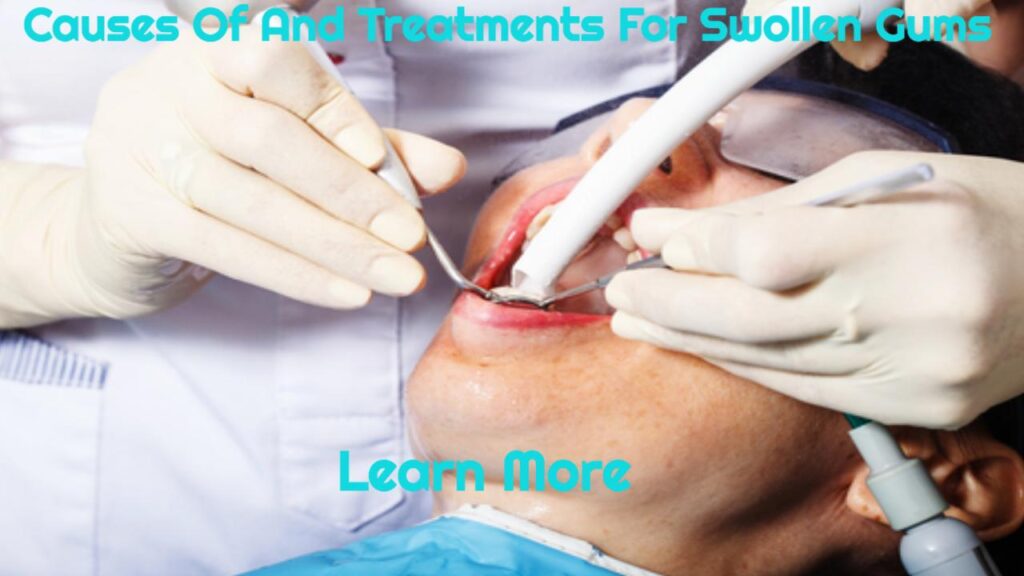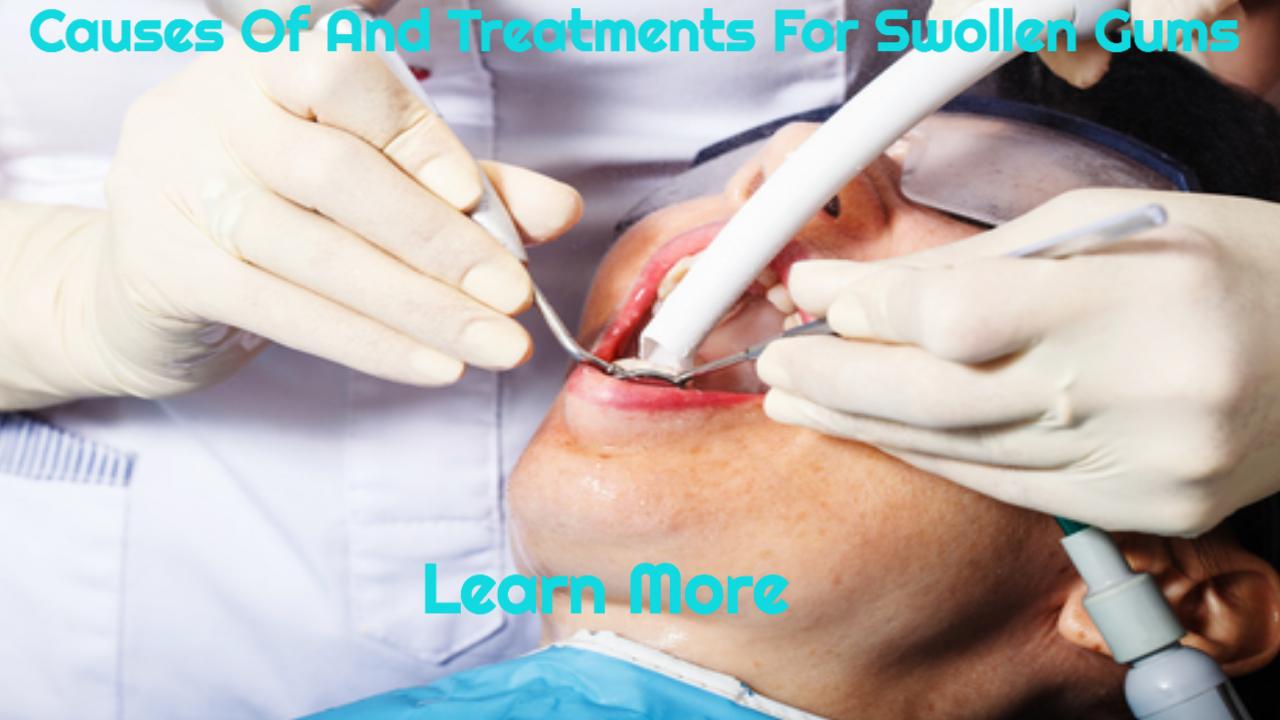Swollen Gums – Solutions for Treating Gum Inflammation
Healthy gums are made up of firm, pink tissue that is thick and fibrous. Unfortunately, this tissue may become irritated and bloated, leading to additional major oral health problems. Swollen gums may also be painful, sensitive, and easily irritated. Furthermore, they may bleed more readily while brushing and flossing.
What Causes Swollen Gums?
Gingivitis, a gum disease that may produce moderate to severe symptoms, is the most prevalent cause of swollen gums. Gingivitis, if left untreated, may progress to periodontal disease and eventually tooth loss. Gingivitis is most often caused by persons failing to brush and floss regularly, enabling plaque and tartar to build up near the gum line. Hardened plaque may irritate gum soft tissue and cause bacterial accumulation.
Gingival edema is also prevalent during pregnancy, even in the absence of gum disease. However, the cause of the inflammation is somewhat different. During this period, the body releases a surge of hormones that boosts blood flow to the gums and other regions of the body, causing irritation and swelling. Unfortunately, pregnant hormones may reduce immune system responses, making it more difficult for the body to fight gingivitis.
Gum swelling may be caused by vitamin inadequacies in persons of any age or gender. Vitamins B and C are required for gum tissue maintenance and healing. Scurvy, which causes gum disease and anemia, may also be caused by a lack of vitamin C. While malnutrition is rare in modern countries, it is not unheard of and may lead to major oral health concerns in the elderly.
Finally, gum inflammation may be caused by bacterial, viral, or fungal diseases. Herpes infections, for example, may result in an acute illness known as herpetic gingivostomatitis. Yeast infections may also cause thrush, which causes gum swelling, and bacterial infections in the mouth can cause abscesses.
Treatment Options for Swollen Gums
In mild situations, swollen gums may be treated at home using over-the-counter medications. People suffering from gingival inflammation should take care while brushing and flossing to prevent irritation, regardless of the reason of the swelling. Furthermore, they should often rinse with salt water to remove microorganisms. Drinking water to increase saliva production may also aid in the avoidance of irritants such as alcohol and smoke.
Assume the swelling is substantial and lasts longer than two weeks. In such situation, it's time to consult with a dentist about expert treatment for swollen gums. Treatment options differ depending on the source of the edema. If no obvious reason is found, the dentist may conduct X-rays or blood testing.
If gingivitis produces swelling, the dentist may prescribe an oral rinse and a particular toothpaste brand. To tackle severe bacterial infections, topical or oral antibiotics may be required. Gingivitis therapy may need surgery in the most severe instances.
How to Prevent Swollen Gums
The easiest strategy to avoid sore gums is to practice proper dental hygiene and eat a balanced diet. Brush twice a day and floss once a day, but don't brush or floss too hard. People who are pregnant or lacking in vitamins should use a soft-bristled toothbrush. Anyone suffering from an underlying medical problem that may be contributing to their swollen gums may benefit from a soft-bristled toothbrush as well.
People who are concerned about their gum health should also avoid specific meals. They are as follows:
- Alcohol
- Sports drinks
- Sugary soda
- Chewy candy
- White bread
- Citrus fruits
To treat gum disease or periodontitis, various dietary changes may be required. Consuming more fiber-rich fruits and vegetables, for example, may help individuals prevent gum disease and cavities. Cheese, milk, plain yogurt, and other natural dairy products may also be beneficial. These foods include minerals that may aid with general oral health.
Green and black teas are also effective against gingivitis. They include polyphenols, which interact with plaque-causing bacteria by inhibiting their growth and production of acids that harm the teeth and gums.
When to See a Dentist
Mild gum inflammation may be treated at home by increasing dental hygiene regimens and making dietary changes. However, more serious situations should always be checked by a dentist. Assume the inflammation creates bleeding, significant discomfort, or lasts longer than two weeks. In such a scenario, you should make an appointment with a general dentist.
Brought To You By: Aria Dental of Annapolis
The post Causes Of And Treatments For Swollen Gums appeared first on https://arquiaca.org
The post Causes Of And Treatments For Swollen Gums appeared first on https://gqcentral.co.uk






